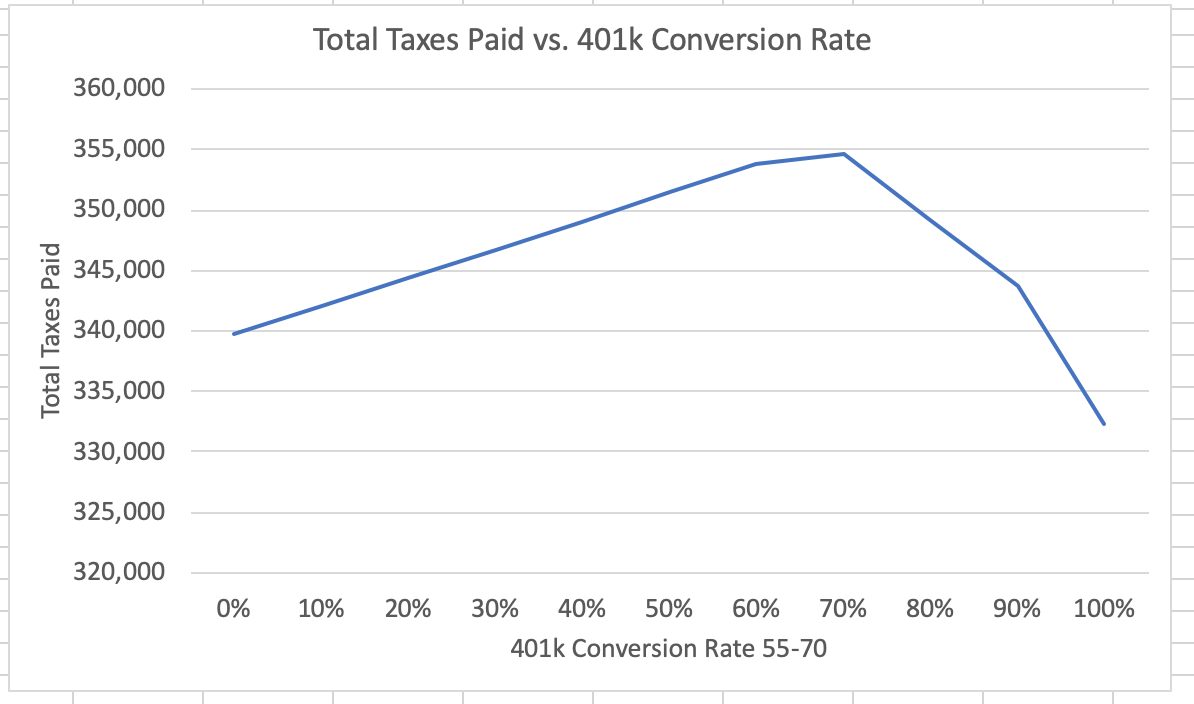Roth conversion
Thanks pb4uski and others for advice here on a plan to move money out of our tIRA's before RMDs hit.- 6 years for us.
2019 is my last year of full time work and 401 K contributions.
So in 2020, we 'll determine our conversion chart -
Another thought - although we are both in good health, if either of us dies before 70.5, the remaining spouse would be hit with heavier taxes on RMD - So tIRA conversion is also a protective mechanism - just in case.
Thanks again
Thanks pb4uski and others for advice here on a plan to move money out of our tIRA's before RMDs hit.- 6 years for us.
2019 is my last year of full time work and 401 K contributions.
So in 2020, we 'll determine our conversion chart -
Another thought - although we are both in good health, if either of us dies before 70.5, the remaining spouse would be hit with heavier taxes on RMD - So tIRA conversion is also a protective mechanism - just in case.
Thanks again

